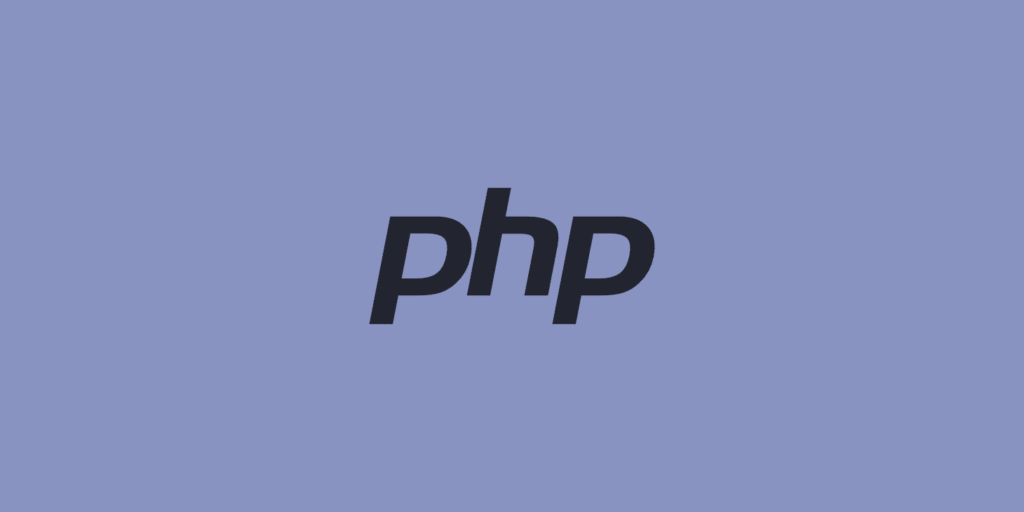Are you a PHP developer looking for a framework to streamline your web development projects? Look no further! In this article, we will explore the top 5 PHP frameworks that are trending in the industry right now. Whether you are a beginner or an experienced developer, these frameworks offer a wide range of features and functionalities to make your coding life easier.

Why use PHP frameworks?
Before we dive into the top 5 PHP frameworks, let’s understand why using a framework is beneficial for PHP developers. PHP frameworks provide a structured and organized approach to web development, saving developers time and effort. They offer a set of pre-built libraries, tools, and components that simplify common tasks and promote code reusability.
By using a PHP framework, developers can focus on writing business logic rather than reinventing the wheel. Frameworks also encourage best practices such as MVC (Model-View-Controller) architecture, which ensures clean separation of concerns and promotes code maintainability. Additionally, PHP frameworks often come with built-in security features, making it easier to protect your web applications from common security vulnerabilities.
Here are the top 5 PHP frameworks
1. Laravel
2. Symfony
3. CodeIgniter
4. Yii
5. CakePHP
In the next sections, we will delve into each framework, exploring its key features, community support, performance, and popularity. By the end of this article, you will have a comprehensive understanding of the best PHP frameworks available and be able to choose the one that fits your project requirements.
Laravel:
Laravel is one of the most popular PHP frameworks, known for its elegant syntax and developer-friendly features. It follows the MVC architectural pattern, making it easy to separate business logic from presentation. Laravel offers a robust set of features, including a powerful ORM (Object-Relational Mapping) called Eloquent, which simplifies database operations.
One of the standout features of Laravel is its built-in authentication system, which allows developers to quickly implement user registration, login, and password reset functionality. Laravel also provides a rich ecosystem of packages, enabling developers to extend the framework’s functionality with ease.
Despite its rich feature set, Laravel maintains excellent performance thanks to its efficient routing system and caching mechanisms. Additionally, Laravel has a large and active community, ensuring continuous support and regular updates.
Symfony:
Symfony is a highly flexible PHP framework that emphasizes code reusability and scalability. It offers a wide range of reusable components, making it easy to integrate third-party libraries and build complex web applications. Symfony follows industry best practices and promotes the use of standard coding conventions, ensuring clean and maintainable code.
One of the key features of Symfony is its powerful debugging and testing tools, which help developers identify and fix issues more efficiently. Symfony also provides excellent support for internationalization and localization, making it a great choice for multilingual projects.
Symfony’s performance is impressive, thanks to its optimized caching mechanisms and efficient class loading. The framework has a dedicated community that actively contributes to its growth and improvement.
CodeIgniter:
CodeIgniter is a lightweight PHP framework known for its simplicity and ease of use. It is designed for developers who prefer a minimalistic approach without sacrificing essential features. CodeIgniter has a small footprint and requires minimal configuration, making it a great choice for small to medium-sized projects.
Despite its lightweight nature, CodeIgniter offers a range of features such as database abstraction, form validation, and session management. The framework also has excellent documentation, making it easy for developers to get started and find answers to their questions.
CodeIgniter’s performance is exceptional, thanks to its efficient execution and low memory usage. It has a dedicated community that actively supports the framework and provides timely updates and bug fixes.
Yii:
Yii is a high-performance PHP framework that emphasizes speed and efficiency. It is designed to handle high-traffic websites and complex web applications. Yii follows the MVC architectural pattern and provides a rich set of features, including a powerful ORM called Active Record, which simplifies database operations.
One of Yii’s standout features is its excellent caching system, which helps improve performance by reducing database queries and page load times. Yii also has a built-in authentication and RBAC (Role-Based Access Control) system, making it easy to implement user management and access control.
Despite its focus on performance, Yii maintains a clean and intuitive codebase, making it easy for developers to work with. The framework has an active community that provides regular updates and support.
CakePHP:
CakePHP is a mature PHP framework known for its simplicity and convention over configuration approach. It offers a powerful scaffolding system that generates code based on the database schema, speeding up development time. CakePHP follows the MVC architectural pattern and provides a range of features such as database abstraction, form validation, and security measures.
One of the standout features of CakePHP is its excellent documentation, which includes detailed guides and API references. This makes it easy for developers to learn the framework and find answers to their questions.
CakePHP’s performance is impressive, thanks to its efficient caching mechanisms and optimized class loading. The framework has an active community that continuously contributes to its improvement and provides support to developers.
Conclusion:
We explored the top PHP frameworks that are currently trending in the industry. We discussed the advantages of using PHP frameworks, compared the key features and benefits of Laravel, Symfony, CodeIgniter, Yii, and CakePHP, and provided guidance on choosing the right framework for your project.
Remember, the choice of a PHP framework depends on your specific project requirements, developer experience, and community support. Each framework offers its unique advantages and can significantly streamline your web development process.
By harnessing the power of these PHP frameworks, you can enhance your coding experience, improve productivity, and deliver high-quality web applications. So go ahead, dive into the world of PHP frameworks, and revolutionize your PHP development journey.










